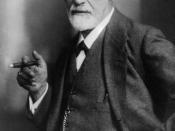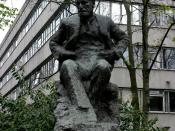Whether you believe in his theories or not, most people would agree that Sigmund Freud is one of the greatest thinkers of modern time. His development of psychoanalysis and the contributions he has made to the study of mental illness is immense. Although he completed most of his work in the early years of last century, he is still hugely influential to this day.
Despite this success, or perhaps due to it, Freud's ideas have always been very controversial. His postulations on human psychological growth, resulted in his theory of psychosexual development. His ideas were particularly contentious at the initial time of release, and frequently are considered so, to this very day. The primary reason for any initial negative reaction was due to the often-strong sexual content of his work. Freud suggested that powerful incestuous sexual desires exist in all of us, including infants. His opinions raised a few eyebrows in Victorian Europe, to say the very least!
The focus of this paper shall not be on this aspect of Freud's theories, but rather on the manner in which he inaccurately differentiates between the psychological growth and maturity of males, and that of females.
Many people have argued that this was very much due to the era in which Freud had operated. The fact is the medical field in which he worked, was at this time a largely male only society. Thoughts from within this profession were often very negative toward women. Whatever the reason, psychoanalysis, and the theories developed from it, have always been considered extremely patriarchal and phallocentric. (1)
Modern supporters of psychoanalysis have denied that this is so, yet rarely make any great arguments to convince you otherwise. Time and time again, we are reminded that many prominent members of the psychoanalytical community have been women.



Good
ab essay that catches the eye of reader
0 out of 0 people found this comment useful.